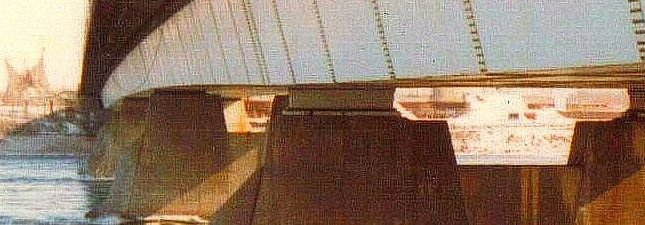 |
| Fire alarm panel in Kyoto apartment. From my flickr |
It hit me like a flash today that 2001 A Space Odyssey is all about the "me" inside us.
Kubrick augmented Clarke's fairly banal story about extra-terrestrial visitation into a philosophical tour-de-force when he modified HAL's role in the story.
He made HAL truly and fundamentally conscious, with all the attendant complications of having to deal with another "me" on the ship.
There exists a school of thought which we could call the ostrich psychologists, who refuse to study or to consider consciousness since they see it as "subjective".
Their idiot brethren cognitive philosophers have proposed a thought experiment to demonstrate this point of view, where a zombie with no "me" interacts with a normal human. The argument goes like this:
- If such a zombie could behave in every way like a person, interact in day-to-day activities "normally", yet not be self-aware, who is to tell that the "me" is not there?
- So ergo, consciousness is a fabrication and is useless.
There is a big flaw in that argument (despite my brutal simplification, that is the crux of it, I promise):
How do we know that the zombie could behave like a human? It may not be possible.
Consciousness is a survival trait, since it makes one evade pain, evade death, it comes with a territorial urge, a the need for a place in the world, a self is an embodiment of the sensory matrix.
So consciousness is, must be, an evolutionary an advantage, it has to make you run or fight better.
Kubrick saw this clearly and expressed it dramatically. HAL defends its turf because it is conscious. The "me" must prevail over those who want to snuff it.
I'd like to finish with a wonderful quote from a non-idiot:
The demand for continuity has, over large tracts of science, proved itself to possess true prophetic power. We ought therefore ourselves sincerely to try every possible mode of conceiving the dawn of consciousness so that it may not appear equivalent to the irruption into the universe of a new nature, non-existent until then.—William James, The Principles of Psychology, 1890
